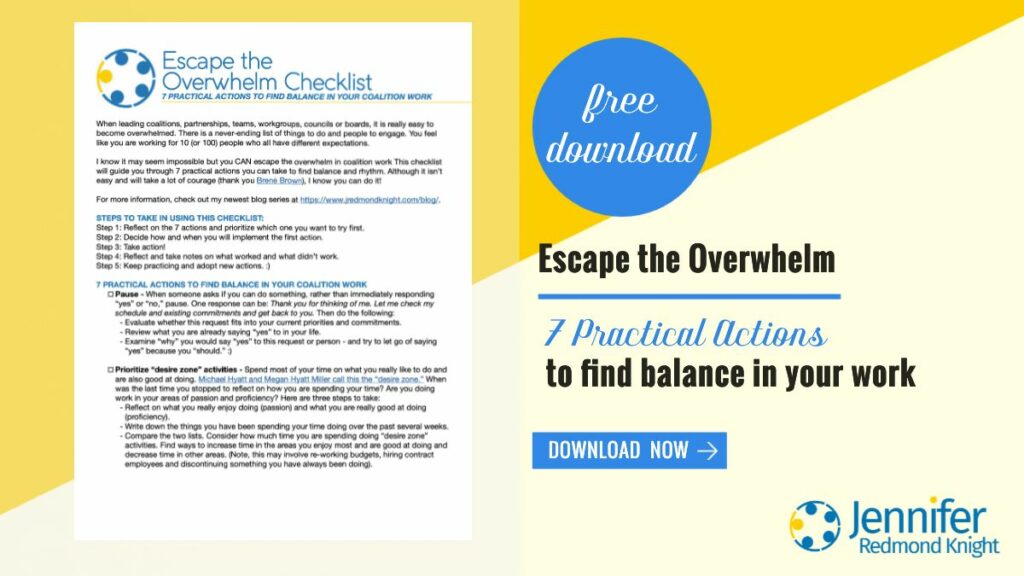Although I have heard the expression from Jeff Walker, Every yes must be defended by a thousand no’s or Warren Buffet’s, The difference between successful people and really successful people is that really successful people say no to almost everything, I realized last week that in many ways every yes is actually “1000” yes’s. If you find yourself struggling once again with feeling overwhelmed, perhaps this perspective can help you be more aware of what a “yes” really entails. Join me this week as I pause, reflect and highlight how we can be more careful with our “yes” so that we don’t end up overwhelmed (again).
Ask more questions
Over the past couple of months, I was invited to present on essentially the same topic four different times. Since it was the same topic, I thought it would be easy to just tweak a couple of slides and be ready to go. However, I quickly realized there were WAY more details involved in each of these “yes’s.” If I had taken the time to ask more questions about how many preparation calls would be involved, the deadline for my presentation, what other documentation would be needed (my bio, learning objectives, headshot, contracts, etc.), I would have recognized how much time I need to allocate to these events and may have connected the organizers to another presenter. Before you say “yes” again to something that seems really easy and simple, take the time to ask more questions and find out the additional “yes’s” that this one “yes” will include.
Evaluate your priorities
While you may be able to do something well or be the perfect fit for a new opportunity, consider how this “yes” fits into your current priorities. For example, each week, I am attempting to spend at least half a day on Friday with my four-year old daughter, Ruby. When I say “yes” to something, I need to consider how much time it will really take so that I can honor my priority with Ruby. If my “yes” becomes 1000 unexpected yes’s, I then have to make a really difficult decision and can easily become overwhelmed again.
Review your existing commitments
Take time to reflect on your current “yes’s” and the details involved in those yes’s. When you review your existing commitments, write the details, next steps and deadlines involved. After this review, schedule time on your calendar to work on those next steps and details. Once you have included those existing commitments in your calendar, you can more clearly see the capacity you have (or don’t have) to say “yes” again.
So what about you? How will you apply one or more of these strategies to be more aware of your “yes”?
If you are interested in more support on this topics, click here to access the recording from my August Masterclass, Escape the Overwhelm.
You may also enjoy my summer Escape the Overwhelm blog series and my resource, Escape the Overwhelm Checklist.

